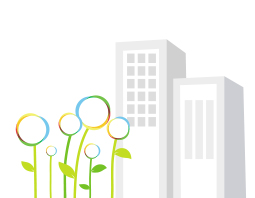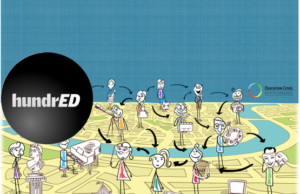This concept should not be confused with other exiting models such as Educating Cities, Child Friendly Cities, and Learning Cities, that deal with education activities that are not tied to the municipal education system.

This concept should not be confused with other exiting models such as Educating Cities, Child Friendly Cities, and Learning Cities, that deal with education activities that are not tied to the municipal education system.
The Education City vision is led today by Education Cities in Israel. In 2017, the organization received international recognition by the Finnish HundrED program that chose it as one of the hundred most inspirational education initiatives in the world today.
An Education City shifts from working in a “Pyramid Paradigm” to a “network Paradigm”. This definition entails weaving a citywide network. A network of collaborations aimed at working to solve the city’s challenges.

Collaborations can exist between all the entities and residents in the city (Sharing Cities), however, in an Education City, the driving force of such collaborations, the core of the network’s hive is the municipal education system
The community of heads of teachers, teachers, and students begins to collaborate and the network space spreads throughout the city.
In the first phase, schools in the city begin to work in collaboration, next, public and private organizations join in, and as does the adult population in the city. Gradually, a network of collaborations forms in which every organization and every individual in the city can be a “teacher” and a “student,” or in other words can share and acquire knowledge, for the goal of promoting municipal challenges.
The city becomes a development center focused on promoting the city and its residents.
In the increasingly growing “knowledge wave” (Alvin Toffler), in which the creation of new knowledge will be the main source of livelihood (as opposed to the information wave where knowledge transfer was the central value), the citywide process constitutes a “key player” and the municipal platform is the best fitting platform for lifelong learning.
The structure offered by the original school system (12K) is no longer sufficient for life in a rapidly changing world. A world that demands a diversified lifelong learning from us, and turns each and every one of us into a student (and a teacher) well beyond the boundaries of school. The old structure is no longer sufficient, mainly if we wish that every human being (in every age) will find what Sir Ken Robinson defines as their “Element” or their unique personal areas of strength and growth. On the other hand, municipal resources – human capital (resident and their areas of expertise), nature, culture, businesses, social centers, and of course, all the existing educational spaces in the city, like nurseries, schools, universities, and more – open to the learner new and fascinating worlds of content in which he/she can express their uniqueness and skills. All within a collaboration between the education system and the community.
This kind of transformation is becoming increasingly more and more possible thanks to the meaningful change that occurs in the world. A change that generates productive collaborations between the state (Ministry of Education) and local authorities. The center of gravity and control over education and other aspects of our lives is shifting from the hands of the state to the local authority. Cumbersome and lengthy processes of the past give way to simpler and more attainable processes in the local community. Mayors, municipal directors of education departments, and local entrepreneurs, are no longer required to wait for a lengthy and sluggish nationwide process, and have the mandate to implement innovative educational programs in their municipality and to promote the necessary collaborations for transforming the city into one big school.
These collaborations exist on many levels – between schools; between schools and public & private systems; between teachers; between teachers and students; between teachers and parents; and between all the residents in the city.
Education Cities has created the Educational/Urban Innovation Lab for the goal of promoting these collaborations. The lab serves as a platform for nurturing and developing citywide collaborations. The lab tackles municipal challenges while empowering and supporting its individual participants which can be teachers, heads of teachers, leaders of the education system, representatives from various organizations, business representatives, artists, and every resident interested in taking part in tackling challenges.
In the lab, individual participants come together to form an empowering and supporting group for its members, which utilizes its members’ unique skills and abilities.
The shared work can occur in a classroom, school, city, and the world. From our experience, when given the opportunity to dream, learn, and experience, participants of the lab flourish and work enthusiastically and out of inspiration. Their zeal, even when directed only to a small island of innovation, is contagious and generates a movement of shared citywide creativity. And in turn, they gladly contribute to the development of the city they are proud to call home